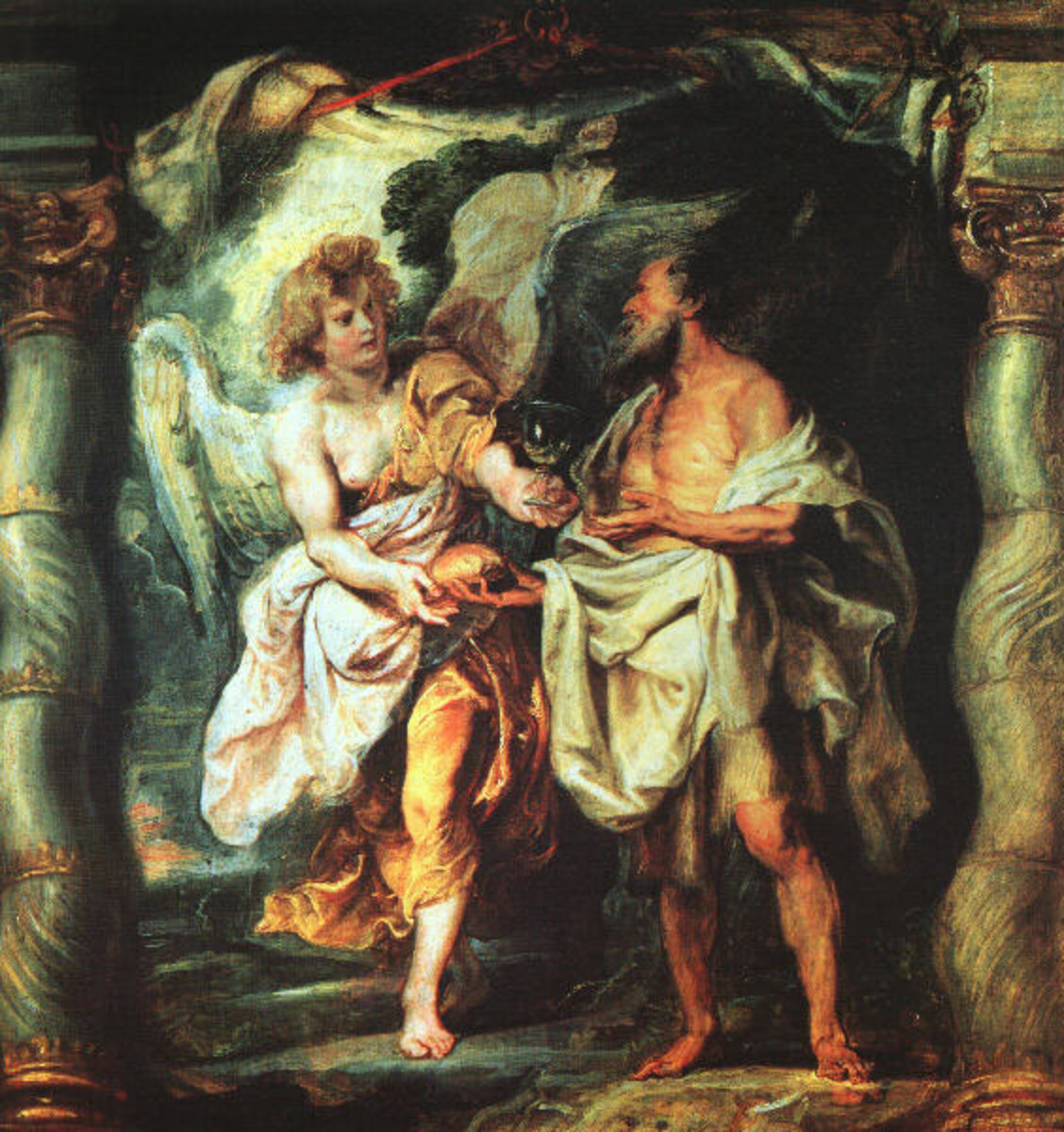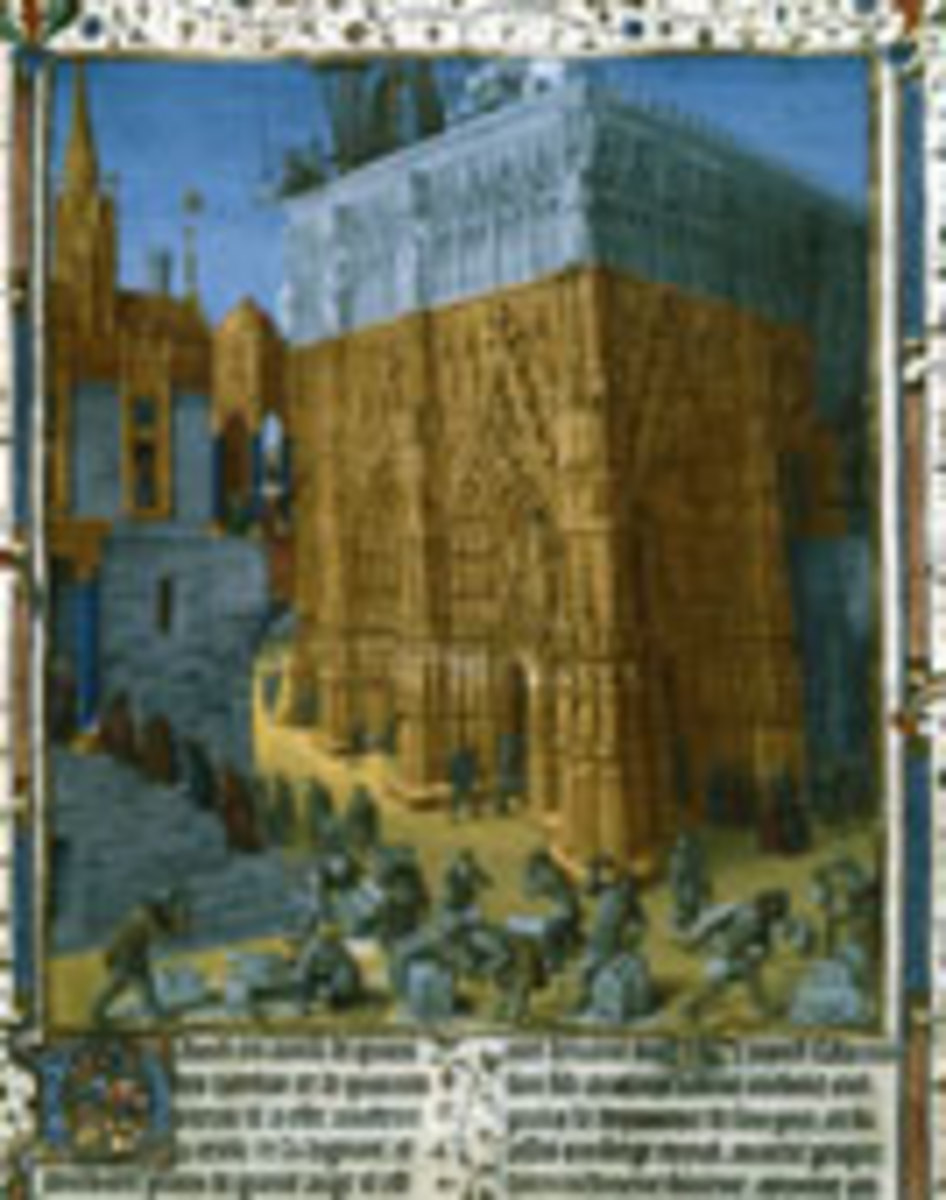Longing Cry For Deliverance

Realizing The Redemption Of Jesus For All The Right Reasons
Like most Christian kids growing up in a God-fearing home, I never understood many of the religious rituals that my parents practiced. One practice in particular centered on the first day of Holy Week. Mom and Dad may have forgotten to enlighten me as to why we celebrate Palm Sunday and treasure the palms that were blessed in the church. I suspect that they simply went along with their church tradition, as many Christians do, without taking the time to understand the meaning behind the religious practice. Yet every year, we would attend Palm Sunday and take our palm branch home, as did every other parishioner. Families were given the freedom to place them in their prayer altars or tuck them in their bibles. My parents chose to showcase our palm branch over the main entrance of our home. Our palm branch was treated as a holy object. It supposedly served as a means of protection to ward off evildoers and spirits. I’d constantly come away asking myself, “What’s that all about?”
Whether these palms are being used to serve as holy objects in some church circles or remain reminders of Jesus’ entry into the city of Jerusalem, the question still stands, “How did these palms evolve from our past to become the Christian symbols that they are today?”
Judas The Hammerer
In the past, Israel has long struggled with tyrants and tyrannical rule as it struggles with terrorists and terrorist states today. In fact, 500 years before the birth of Christ, this tiny country has been the highly contested center of a political tug-of-war between the great powers of the Middle East. Foreign empires have fought over it, powerful kingdoms have occupied it, massive armies have marched through it, and Jewish inhabitants have cried over it.
A century and a half before Jesus’ birth, the Syrian king Antiochus Epiphanes invaded Israel and defiled the temple in Jerusalem. In an attempt to establish the worship of their pagan god, he desecrates this sacred place by sacrificing swine’s blood upon the altar of burnt offerings, sprinkling the premises with boiled water from animal flesh, setting up the statue of Jupiter, stepping into the Holy of holies, and sacking the temple treasury.[i] Enter Judas the Maccabean three years later. Maccabean means “the Hammerer” in Hebrew. Judas was a Jewish soldier and patriot. He is remembered as the man who drove the first nail into the Syrian defenses by launching a successful guerilla campaign. When Judas the Maccabean triumphed over the Syrian forces and cleansed the temple of pagan pollution, the people celebrated the occasion with a great festival.[ii] The Jews brought palms to the temple[iii] to commemorate their long hard fight for their national independence and religious freedom.[iv]
When Judas’ brother Simon drove the Syrian forces out of the Jerusalem citadel in 142 BC, he was honored with praise and the waving of palm branches as the Jews took possession of it.[v] The waving of palm branches accompanies this praise as a symbol of victory—God’s saving love for his people. Thus, the palm became a symbol of nationalism—a symbol of power over all Israel. And ever since the days of those short-lived victories, the Jews looked with hope for their promised Messiah and/or deliverer,[vi] the blessed one who comes in the name of the LORD[vii]—the King of Israel!
Jesus The Deliverer
By the time Jesus steps into human history, Israel finds itself in the grip of Roman rulers and is ripe for another rebellion. It’s the first day of the week signaling the start of Passover. This Sunday also marked the last week of Jesus’ journey and mission on earth. There are festivals and there are festivals, but the Passover happens to be the mother of all Jewish religious festivals. At Passover, all roads lead to the Holy City. The population spills to overflowing as devote pilgrims journey back to Jerusalem. Talk of a possible political uprising occupies the people’s minds. Many would-be messiahs have used the Passover in the past to incite revolution. People anxiously wait for the time when the Roman tyrants are finally overthrown. After all, Passover speaks of the time when God delivered his people from Egyptian bondage. This was as good a time as any for God to come to their rescue. And from all the mighty signs and wonders executed by a young Rabbi from Galilee, Jesus of Nazareth seems to fit the job description of a deliverer. The population was infected. The fever of freedom was in the air!
The crowd waves their palm branches and shout praises to Jesus, “Hosanna! Blessed is the one who comes in the name of the Lord—the King of Israel!”[viii] In John 1:49 Nathanael greeted Jesus saying, "Rabbi, you are the Son of God! You are the King of Israel!" In John 6:15 a crowd came from Galilee and were about to take Jesus by force to make him king. No doubt there were a large number of people who had wished, for the longest time, that Jesus would come to the capital, claim his royal title, and liberate the nation. Long enough had the Jewish people struggled for independence against the domination of a pagan empire. Long enough had they waited for a national liberator who would rally the people to victory over their enemies. Long enough had they hoped for a triumphant king to come and fulfill all the prophecies associated with the throne of David.[ix] And today was an exceptional day. A day that was dying to be delivered. You could practically smell a second exodus in the making. The population was infected. The fever of freedom was in the air!
The procession from below merges with the city crowd. Together they burst into the gates with a great cloud of dust in Jesus’ train. The crowd that proceeded with Jesus from below continued to bear first-hand witness that Jesus raised Lazarus form the dead. The crowd that welcomed him from above continued to shout royal praises that Jesus comes in the name of the Lord. They repeatedly cry out, “Hosanna, Hosanna!” This is a Hebrew expression meaning literally, “Save now, Save now!” Jesus was hailed from top to bottom as the King of Israel. The people attempted to fashion for themselves a king who suited their own agenda—one who they could willingly follow. Again and again, the people wanted to force Jesus[x] into their world rather than allow him to call them out of their fallen world and into his new world. They’re saying, “Lord deliver us according to our timetable. Enter into our city, Jerusalem. Triumph over our enemy, Rome. Rule over our land, Israel. Be the kind of king we want you to be. Hosanna! Save us now!” The population was infected. The fever of freedom was in the air!
And just when this anxious-ridden crowd reached its climactic crescendo in verse 14 we read, Jesus found a young donkey and sat on it.Jesus sought to immediately erase the nationalistic expectations of the people. If a horse has come to symbolize times of war, a donkey symbolized times of peace. Although the disciples did not realize it then, Jesus’ action helps us from misunderstanding the prophet’s words that were fulfilled in the triumphant entrance of Jesus in verse 15, “Do not be afraid, daughter of Zion. Look, your king is coming, sitting on a donkey’s colt!” When Jesus entered the Holy City, he did not come as a wartime freedom fighter but as a peacetime messenger. He did not come as a captain of an army but a Prince of Peace.[xi] He did not come as the Lion who is of the tribe of Judah[xii] to devour the empire of the Romans but as the Lamb of God who takes away the sin of the world.
In the eyes of the liberation-loving, power-hungry crowd, Jesus did not fit the job description. Their sin-darkened hearts did not understand his messianic mission. To them, any time was the right time, but to Jesus, his hour had not yet come.[xiii] As fast as the Jews were in deserting their former leaders and believing in Jesus for raising Lazarus from the dead, it would only be a matter of days before they would turn away and abandon him. The crowd now cheering, “Hosanna, Hosanna!” at Jerusalem’s gate would soon be yelling, “Crucify him, crucify him” at Pilate’s court (19:15). They blessed him upon his entry; they cursed him upon his exit.
The Pharisees and company were clueless concerning this spectacle. The crowd’s reaction toward Jesus caused them to stare at each other in disbelief saying in John 12:19, “Look, the world has gone after him!”The world, in truth, just as quickly gave him up. They discarded the Son of God who refused to play up to their human expectations, dance to their worldly tune, and satisfy their misguided fanatical ideas and longings for freedom—Jesus literally rained on their parade.
True to the text, John 1:10-11 says, “He was in the world, and the world came into being through him; yet the world did not know him. He came to what was his own, and his own people did not accept him.” In Luke 7:18-19 John the Baptist summoned two of his disciples and sent them to Jesus to ask, “Are you the one who is to come, or are we to wait for another?” In Matthew 21:10 we learn that when Jesus entered Jerusalem, “the whole city was in turmoil, asking, ‘Who is this?’” But the fact remains that Jesus in truth was the Lamb of God who will be shortly sacrificed for the sin of the world. He will be crucified, he will suffer, and he will die on the day and at the hour when Israel slaughters the lambs at Passover.
Luke’s gospel tells us that Jesus came near and saw the city of Jerusalem. He saw a multitude of people who were broken and spiritually bankrupt. He saw that their hearts were just aching to be filled with any shred of hope for their hopeless situation. It was a sad sight to see as Jesus wept over Jerusalem. He wept because the time was coming when the city would suffer the siege of the enemy. Their troubles were far from over. The Romans will crush the city to the ground along with the entire population—not one stone will be left standing upon another. The destruction will be total. Escape will be impossible. Jesus wept because he knew the reason why Jerusalem would suffer this fate. It was because his own people did not recognize the time of their visitation from God.[xiv] And sure enough, some thirty years later, Jesus’ prophecy came to pass.
People are no different today. They may read of Jesus’ procession passing by or see it recreated in their churches without the faintest clue of what it really means. Remember that even his own disciples and those closest to him did not understand these things until Jesus was glorified. Had you been there what would you be feeling? Would you have behaved like a zealous fanatic, an uncommitted fence sitter, or a faithful follower? Would you be hopeful, fearful, or confused about the events that are unfolding before you? How is Jesus revealing himself to you this Palm Sunday?
Many people come to Jesus and even follow him for all sorts of reasons. They come to him for the benefits and blessings, the miracles and healings, and the teachings that tickle their ears. How about you? What are the reasons that have drawn you to Christ? What were the motives that moved you toward him? Every time Palm Sunday rolls around, we all get the opportunity to look back and remember Jesus’ triumphant entry into Jerusalem. But maybe today there will be those who finally get it. Jesus wanted much more than just to enter this lost city. He wanted to enter into the lives of lost souls. It is his solemn desire to rule over human hearts. He wants all of us to love, follow, and serve him for all the right reasons.
Jesus continues to weep for the lost and leaderless souls today as he did when facing the city of Jerusalem. He weeps for the sin-ridden hearts that are spiritually ripe for destruction. Don’t be swayed by the misguided crowd or self-righteous religious leaders. God won’t work in the life of those who have hidden agendas. God won’t work with those who are high and mighty. God won’t work with those that embrace their self-serving purposes. He works with those who have a broken and repentant heart. Like the city of Jerusalem, God may have to tear you down in order to resurrect and build you back up his way.
What is your world like today? Are you living an unfulfilled life? Have you lost your purpose and meaning? Have you come to a place where you are backed up against the corner and broken? Have you run out of options? If so, don’t allow Jesus’ procession to pass you by. Today is the day of your salvation. Get off your high horse, seize this moment, and join Jesus’ life-giving, purpose fulfilling bandwagon. Come to Jesus for all the right reasons. Open the gates of your needy heart and receive your King and Savior.
Endnotes
[i] The Latter Rain Page.com.
[ii] J. D. Douglas and Merrill C. Tenney, The New International Dictionary of the Bible (Grand Rapids: Zondervan, 1987), 609.
[iii] 2 Maccabees 10:7.
[iv] Ibid.
[v] 2 Maccabees 13:51.
[vi] John Goldingay, “Psalms Volume 3: Psalms 90-150” (Grand Rapids: Baker Academic, 2008), 354. Goldingay comments, “In Psalm 118 the language suggests a psalm for a king or other leader, delivered from a crisis issuing from his position in relation to the people as a whole.”
[vii] Psalm 118:26.
[viii] John 12:13.
[ix] Luke 1:32-33.
[x] John 6:15.
[xi] Isaiah 9:6.
[xii] Revelation 5:5.
[xiii] John 7:1-8.
[xiv] Luke 19:41-44.
© 2010, Gicky Soriano. All rights reserved.








